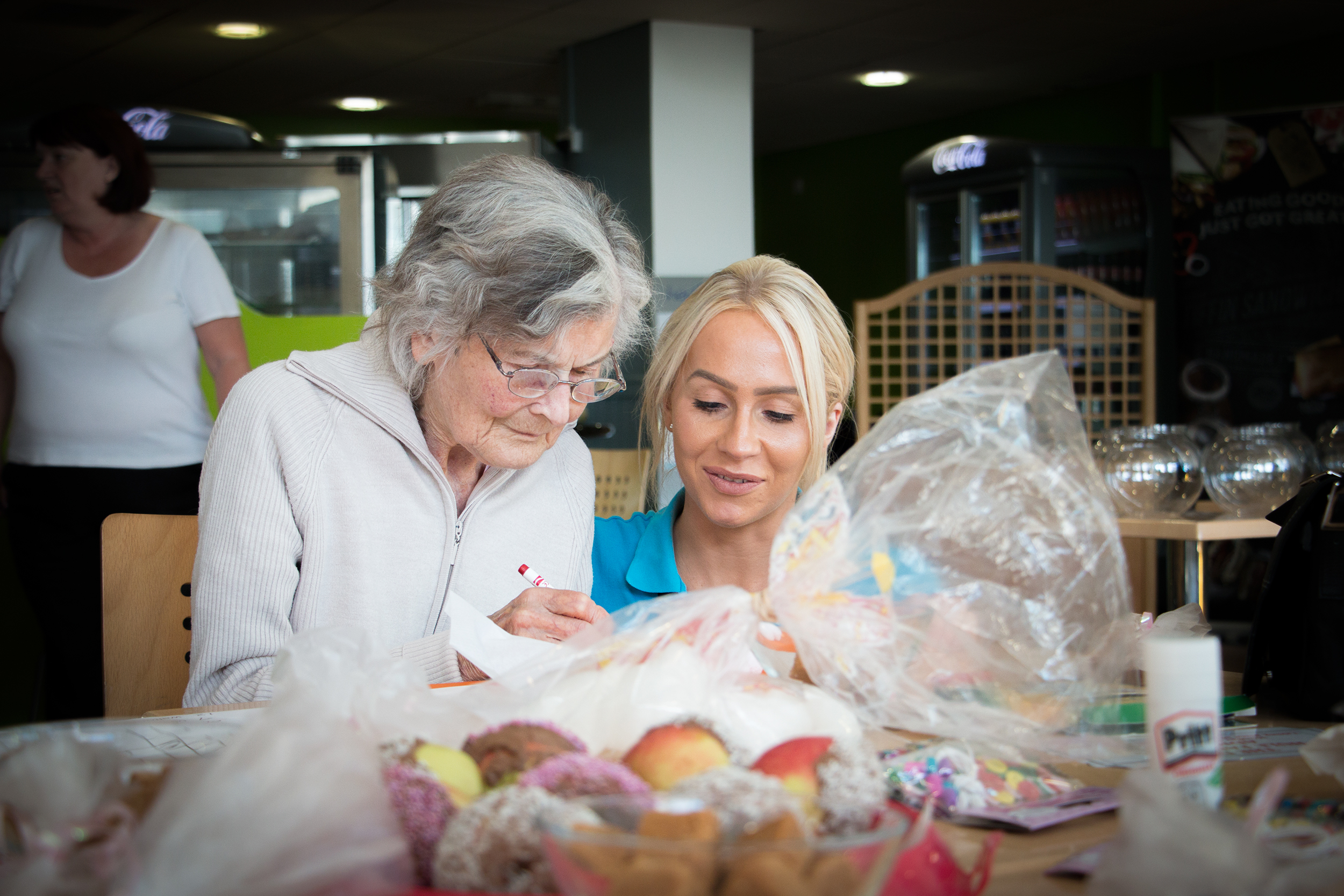They may not be medically trained, but the latest recruits to help care for older people at Hull Royal Infirmary are a
tonic in themselves.
Hull University Teaching Hospitals NHS Trust has created two apprentice Recreational Coordinator posts to help
improve the experience of older people in hospital.
Thought to be the first of their kind employed by any acute hospital in the country, Recreational Coordinators
Laura Marks and Emma Smith provide a warm smile, a friendly face, and ensure their patients on wards 8 and 80, 9
and 90 have plenty to occupy their time.
Debbie Hamer, Business Manager for the Department of Medicine for the Elderly explains:
“The idea to introduce recreational posts to our wards came from Dr Kirsten Richards, Clinical Director for Medical
Elderly, who had noticed how well the Play Therapists in Paediatrics engaged with children spending time in
hospital, keeping them busy and entertained. We thought a post like this could make an equally positive difference
to the elderly patients in our care, so with the support of the Divisional Nurse Manager, Stacey Healand, we
decided to give it a go.
“Some of our patients may not have relatives or visitors, and often they might not have spoken to anyone for
weeks before coming into hospital. Older people decondition very quickly once they are admitted to hospital, so
keeping our patients physically healthy and mental well is really important, and that’s where Laura and Emma
come into their own.”
Often considered the ‘gold standard’ in care homes, the use of recreational staff in acute hospitals has been so far
unheard of, making Hull University Teaching Hospitals NHS Trust the first in the country to introduce such a role.
The Recreational Coordinators provide activities and entertainment for all older people on the wards, not just
those with dementia, to occupy their time and make them feel happy and cared for. And for Emma and Laura, now
working on the hospital’s 8th and 9th floors respectively, no two days are ever the same.
“I used to work in a care home promoting physical activity amongst residents, so I know just how important it is for
older people to stay physically active and mentally alert,” says Laura.
“Since I started at Hull Royal Infirmary, I’ve been doing all sorts of things, from nail painting and hand massage to
helping out at mealtimes and even recreating the seaside on the 8th floor, complete with a sandy beach! It’s all
about giving people a good experience whilst they are in hospital so they have a positive mindset, which can really
help when it then comes to their physical recovery.
“Being a Recreational Coordinator is such a rewarding job, and we have a lot of flexibility to be able to choose what
we want to do for our patients on any given day. Some patients are happy enough to just sit with a puzzle book,
but others will prefer a bit of company and enjoy having someone there who has time to sit and have a chat.
“It’s no secret how busy our nurses and doctors are these days, so by spending time one-to-one or in groups with
our patients, it not only makes them feel cared for, it also means our clinical staff can get on with what they do
best too.”
At the same time as working on Hull Royal Infirmary’s medical elderly wards, Laura and Emma are also studying
towards NVQ Level 2 in Health and Support Services with the support of Hull-based HYA Training. They are two of
almost 90 apprentices taken on by the Trust since 2014 in a bid to improve patient care and help grow its
workforce of the future.
Emma says:
“Spending time in hospital can be quite boring for anyone, so our role is to provide activities and opportunities for
older people to socialise with each other and stay both mentally and physically active whilst they’re here.
“No one would want to think of a relative of theirs just sitting and staring out of the window all day, so as well as
spending time one-on-one, we also help to provide group events which encourage patients to get to know each
other, such as afternoon sing-alongs and gentle exercise sessions.
“Small gestures such as a smile or a five minute chat can mean so much to people who might otherwise feel
isolated or alone on the wards, so it’s a really rewarding job and one where you can really see you’re making a
difference.”

